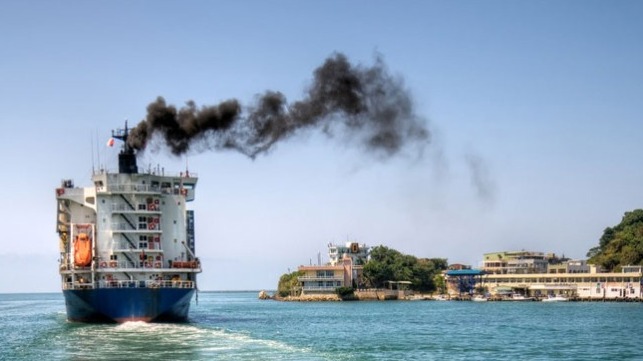Ratings Agency Says 35% of Ships Could Fail to Meet Environmental Regs

A credit rating and analysis firm based in Germany and focused on the European markets is launching the first dedicated database to display Carbon Intensity Indicator (CII) ratings for the world’s commercial maritime fleet. According to Scope ESG Analysis, the database product known as Ship Review, will enhance the transparency of ships’ environmental, sustainability, and reliability/safety performance.
Ship Review includes independent ESG assessments of more than 70,000 vessels based on estimates of several carbon intensity indicators, including the Annual Efficiency Ratio, the Energy Efficiency Operational Indicator, and total CO2 emitted in a year. According to Scope, by comparing the emissions of different ship types, ship management companies, and specific voyages, users can drill down and select alternatives that emit less CO2 per cargo carried.
The calculations include CII rating estimates for all applicable ship types, currently numbering more than 40,000 vessels, applying the IMO’s methodology, and using certified monitoring, reporting, verification data, and data from satellites for distances sailed for more accuracy. The IMO is introducing the rating system to assist the maritime industry in meeting the Greenhouse Gas Reduction Strategy’s target. The CII measures ships’ operational efficiency in grams of CO2 emitted according to deadweight tonnage and nautical miles traveled and will be a core input into a ship’s annual ranking, which runs on a scale of A to E.

that matters most
Get the latest maritime news delivered to your inbox daily.
Based on its analysis of 2020 data, Ship Review projects that more than a third of the world’s fleet is in danger of failing to meet the upcoming restrictions. By January 2023, ships that receive a D rating (13.9 percent against the 2020 baseline) for three successive years or an E rating (21.8 percent based on 2020 data) in any given year will need to implement remediation plans.
Ralf Garrn, Managing Director and project lead at Scope Group highlighted several applications for the Ship Review data. For example, banks and investors following initiatives such as the Poseidon Principles to support climate-neutral ship financing will have access to comprehensive data while ports and regulators can draw on the information in implementing incentives and audits to promote clean and safe shipping operations or ports. Globally, there has been a growing awareness among shippers seeking to ensure that their cargos are being handled in environmentally friendly sea transport. Consumers are also beginning to become aware of the environmental impact tied to manufacturers and products.
